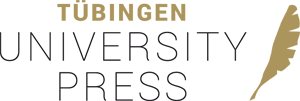
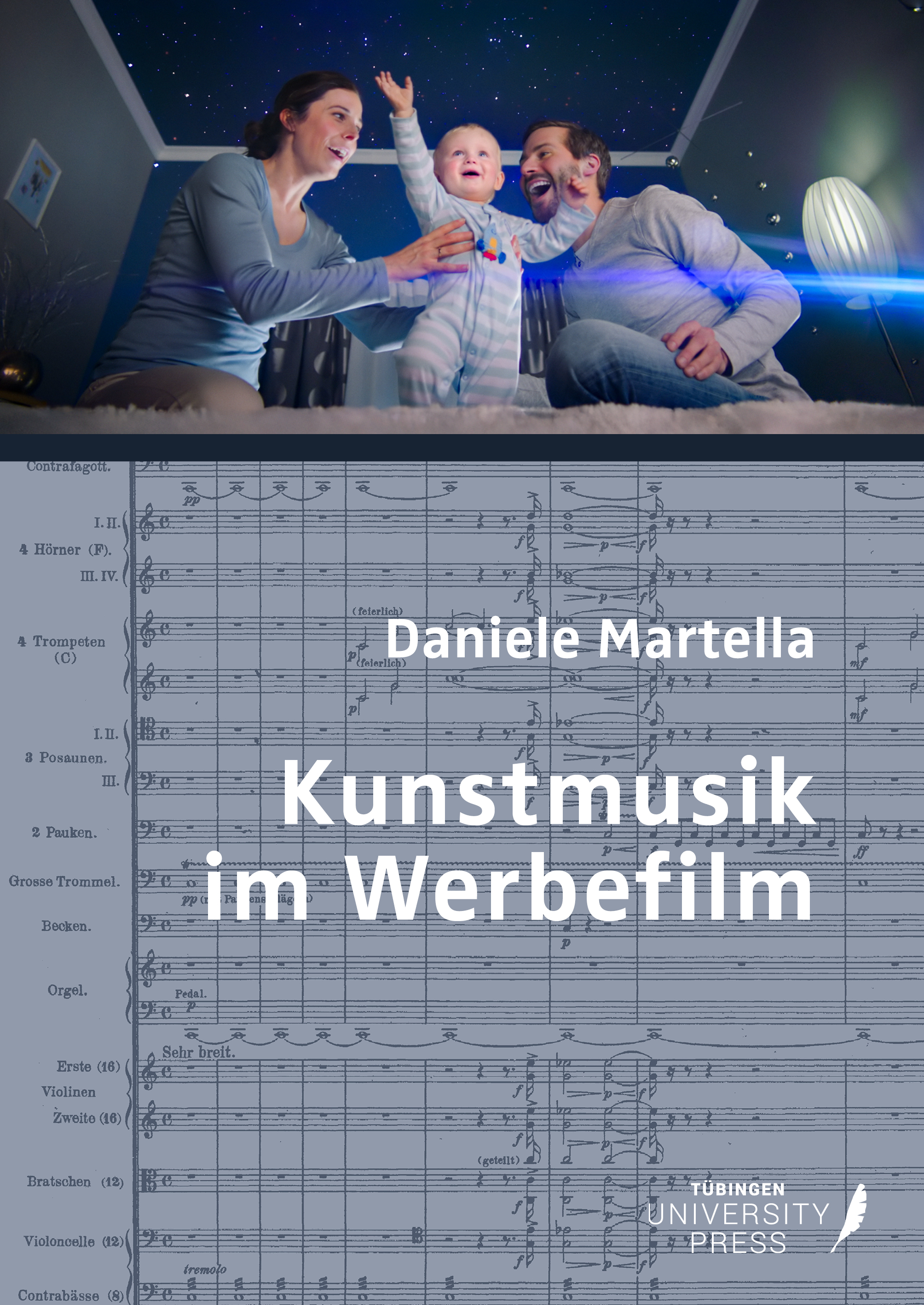
Daniele Martella
ISBN (online): 978-3-98945-023-3
ISBN (print): 978-3-98945-038-7
436 Seiten, Paperback, 170 x 240 mm
44,50 Euro
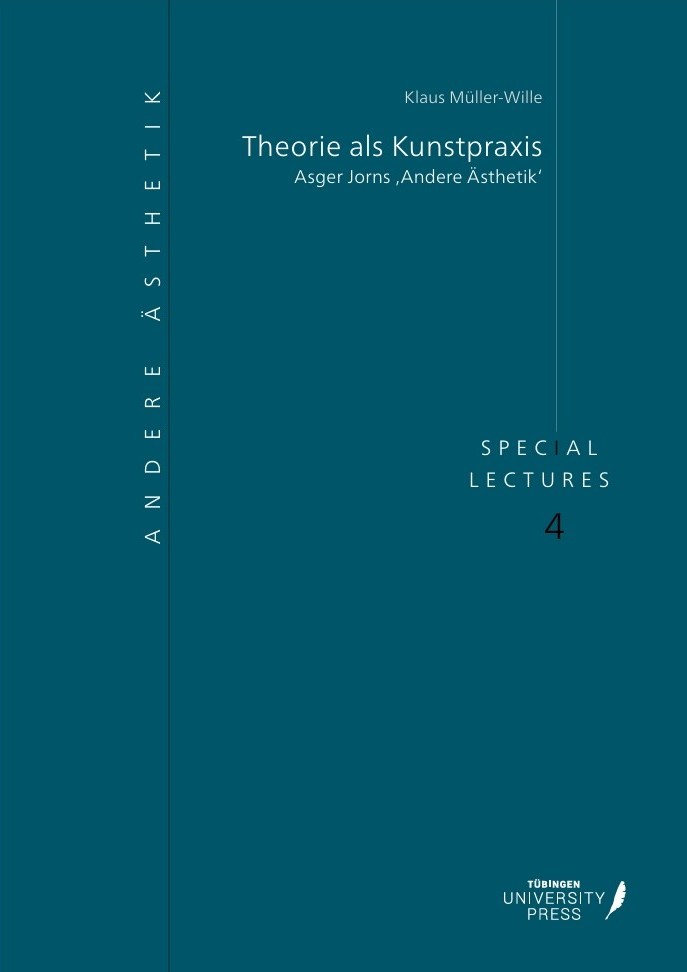
Klaus Müller-Wille
ISBN (online): 978-3-98945-027-1
ISBN (print): 978-3-98945-026-4
168 Seiten, Softhcover, 148 mm x 210 mm
32,60 Euro

The long-term Impact of Creativity Training
Thomas Vogel
ISBN (online): 978-3-98945-029-5
ISBN (print): 978-3-98945-028-8
308 Seiten, Hardcover, 170 x 240 mm
42,80 EUR

Hanno Rauterberg
Hanno Rauterberg fragt nach den Auswirkungen, die maschinelle Bildgeneratoren auf die alltägliche Kunstpraxis in der Digitalmoderne haben. Seine Antwort: Die KI-generierte Kunst führe zur Verabschiedung wirkmächtiger älterer ästhetischer Konzepte wie Singularität und Originalität. Im Zeichen des ‚Abschieds vom Ich‘ entstehe so eine neue Ästhetik des Allgemeinen und Populären, die faszinierende wie dystopische Potenziale aufweist. Diese Potenziale erkundet Rauterberg in einem komplexen und von mehrfachen Blickwechseln getragenen Essay. Dass die Kunstmaßstäbe der philosophischen Ästhetik dabei hinfällig werden, begründet die Relevanz von Rauterbergs Essay für den ästhetischen Diskurs der Gegenwart – und für den Sonderforschungsbereich 1391 Andere Ästhetik.
ISBN (online): 978-3-98945-021-9
ISBN (print): 978-3-98945-020-2
70 Seiten, Softcover, ca. 148 mm x 210 mm
24,80 EUR
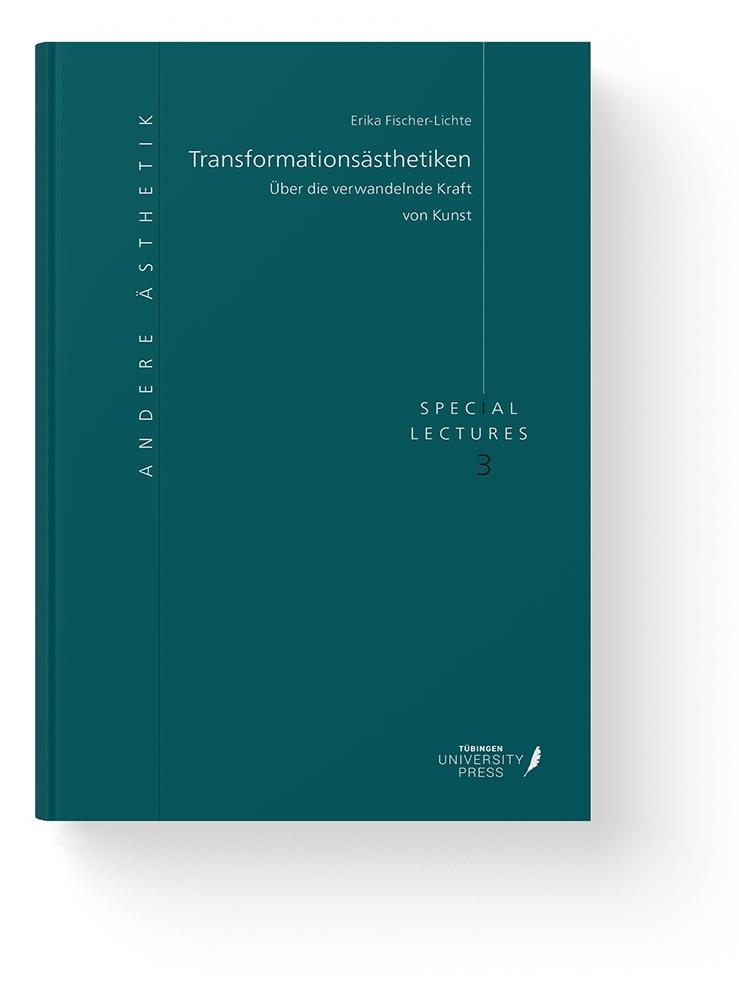
Erika Fischer-Lichte
Anhand europäischer und außereuropäischer performativer Akte verfolgt der Beitrag von Erika Fischer-Lichte ‚Transformationsästhetiken‘ und deren identitätsstiftendes, gesellschaftlich wirksames Potenzial unter Bezug auf einschlägige theoretische Konzepte. Auf dieser Grundlage plädiert die Autorin aus literatur- und theaterwissenschaftlicher Perspektive für ein modifiziertes Verständnis des ‚Ästhetischen‘, das eng an das praxeologische Modell des SFB 1391 Andere Ästhetik anschließt.
ISBN (online): 978-3-947251-77-3
ISBN (print): 978-3-947251-76-6
72 Seiten, Softcover, ca. 148 mm x 210 mm
24,80 EUR
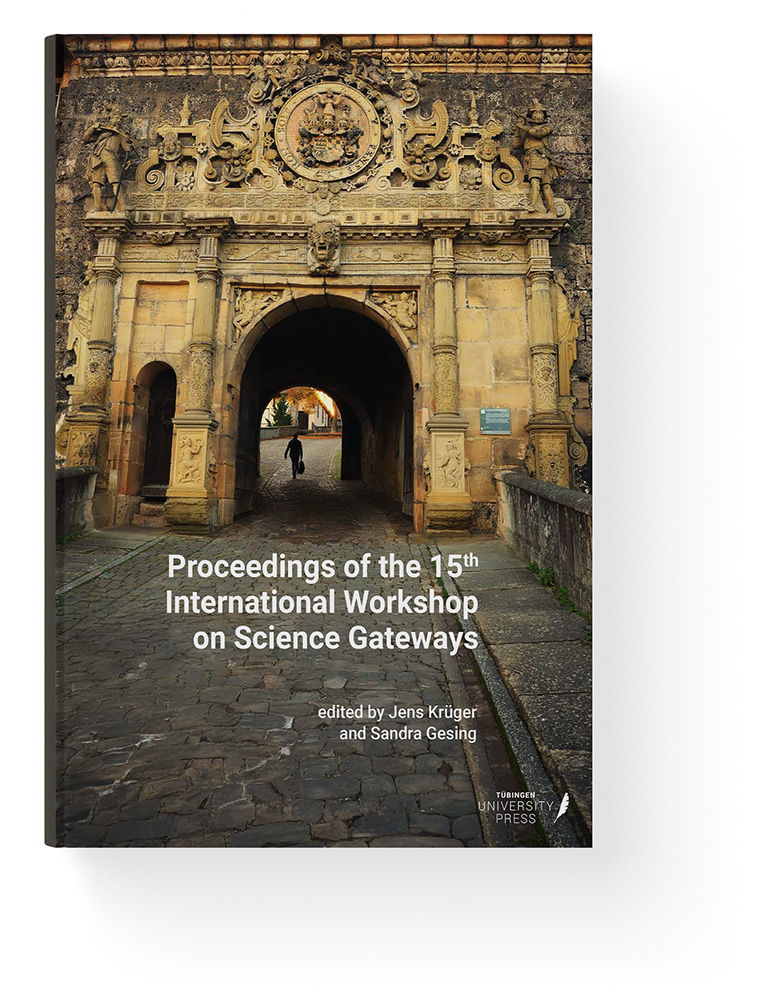
(IWSG2023)
Jens Krüger; Sandra Gesing
ISBN (online): 978-3-98945-019-6
ISBN (print): (nur online)
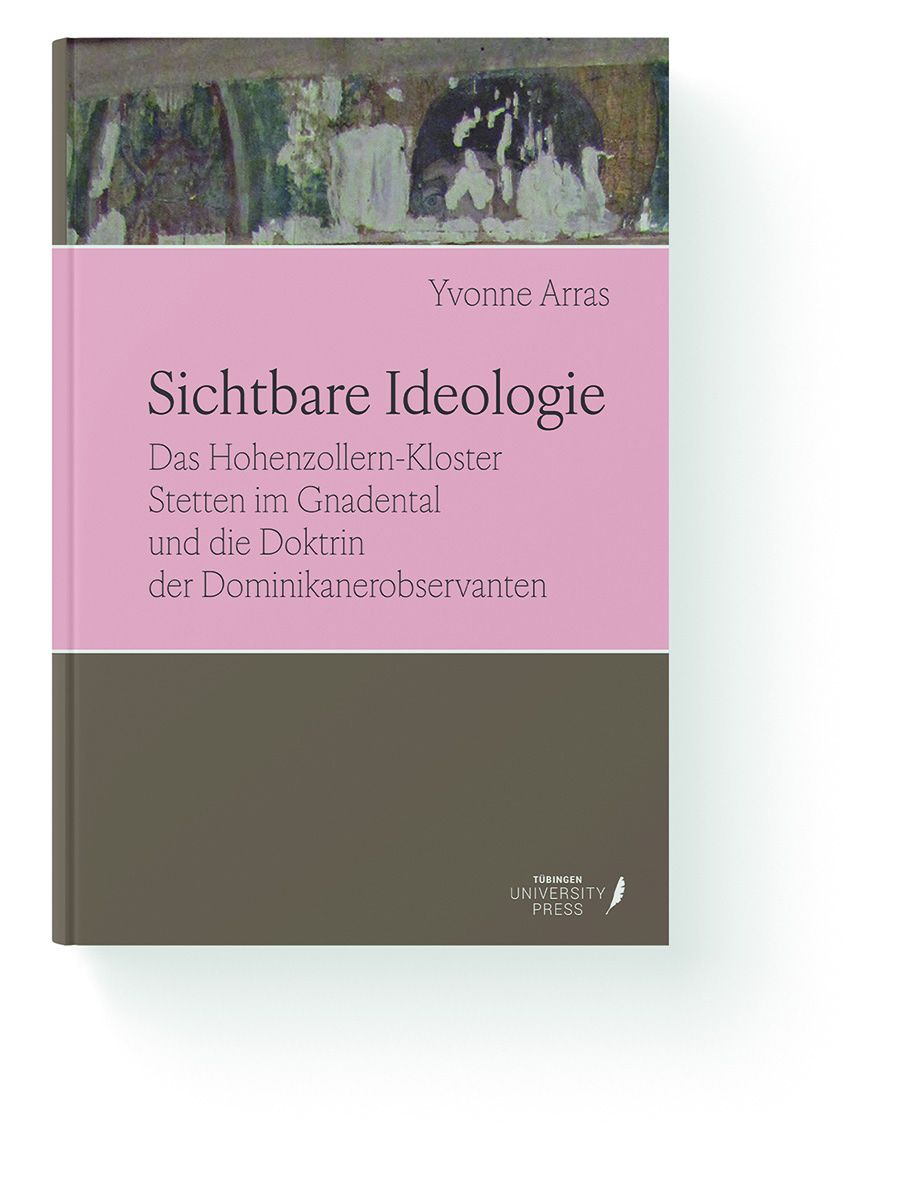
Das Hohenzollern-Kloster Stetten im Gnadental und die Doktrin der Dominikanerobservanten
Yvonne Arras
ISBN (online): 978-3-98945-012-7
ISBN (print): 978-3-98945-011-0
562 Seiten, Hardcover, 170 x 240 mm
66,00 EUR
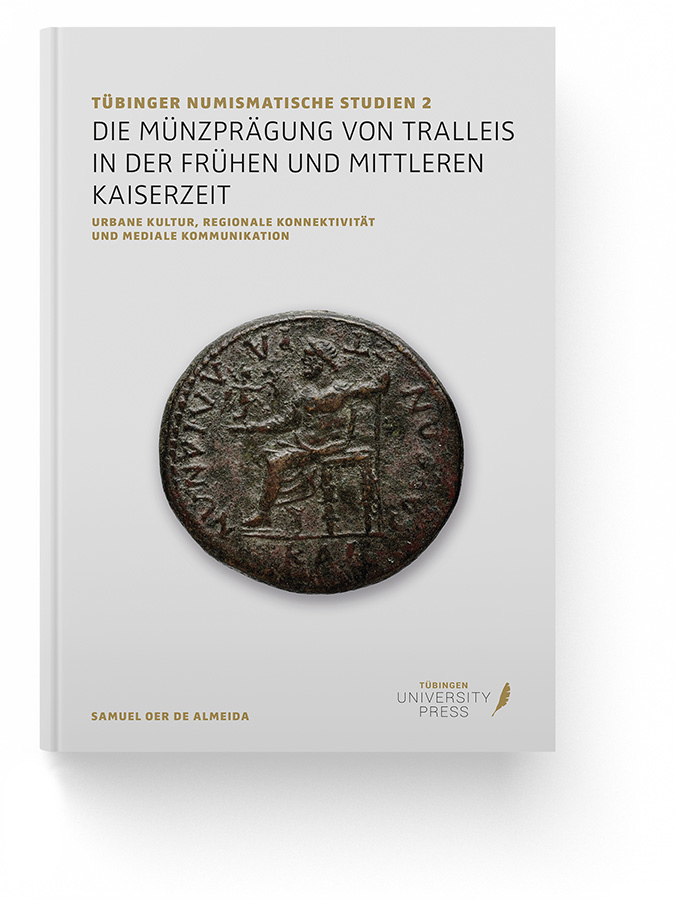
Samuel Oer de Almeida
ISBN (online): 978-3-98945-014-1
ISBN (print): 978-3-98945-013-4
236 Seiten, Hardcover, 170 x 240 mm
39,80 EUR
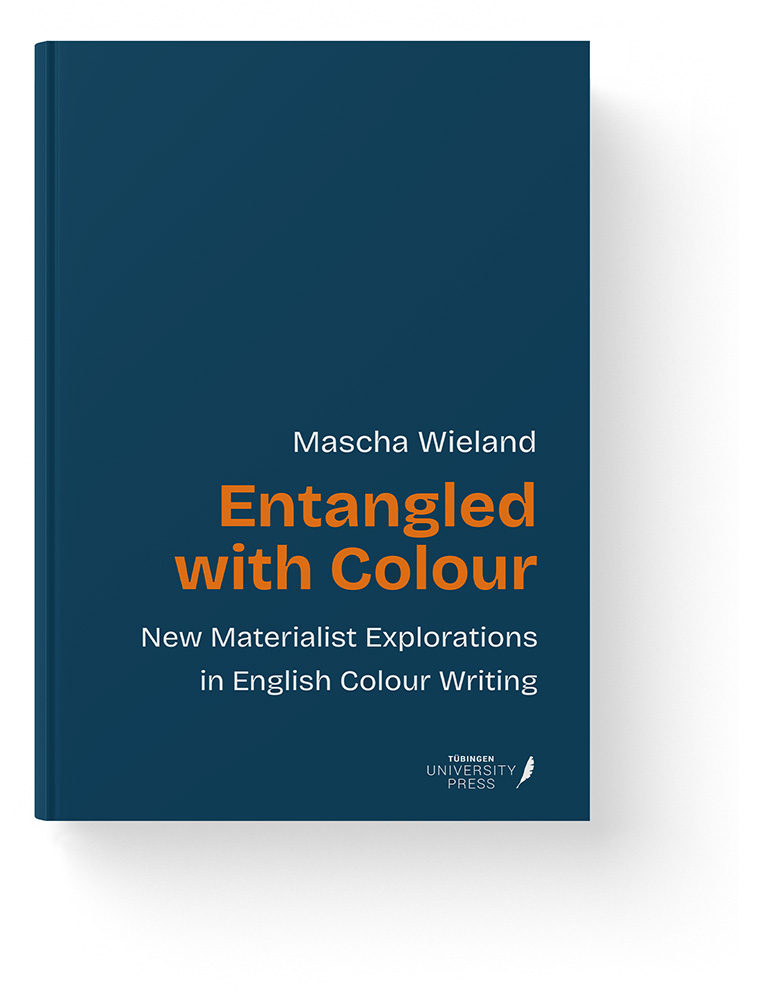
New Materialist Explorations in English Colour Writing
Mascha Wieland
ISBN (online): 978-3-98945-009-7
ISBN (print): 978-3-98945-010-3
326 Seiten, Hardcover, 170 x 240 mm
38,00 EUR
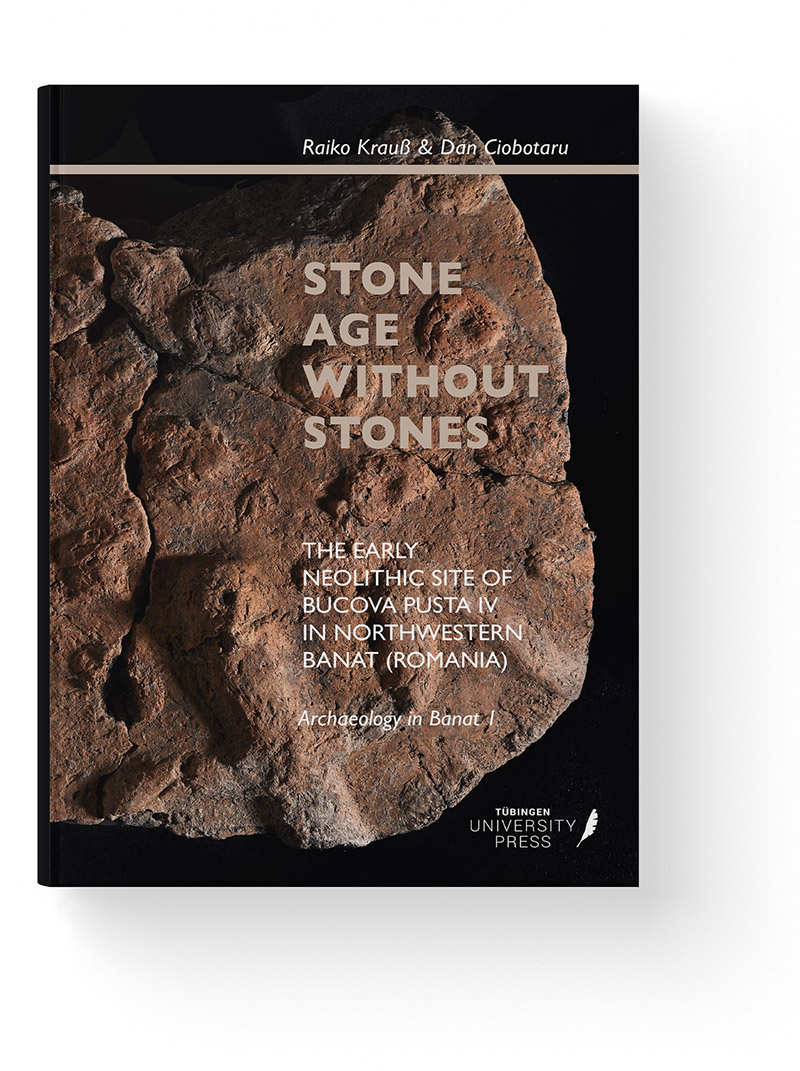
Raiko Krauß
Dan Ciobotaru
This volume deals with the results of the excavations from 2010 to 2015 at the Early Neolithic settlement of Bucova Pusta IV near Sânnicolau Mare, in northern Banat. After the end of the Early Neolithic settlement, a large burial mound was erected at this site in the early 3rd millennium BC, the main burial of which was also documented during the excavations. The site was subsequently inhabited once again during the transition from the Late Bronze Age to the Early Iron Age. In medieval times, the site served as a burial ground for a nomadic equestrian population. The flat landscape of northern Banat is characterised by numerous watercourses. This is why the utilisation of aquatic resources played an important role in the Neolithic period. Another special feature is the lack of natural stones, which is reflected in the special character of the Early Neolithic finds.
ISBN (online): 978-3-98945-008-0
ISBN (print): 978-3-98945-007-3
544 Seiten, zahlreiche farbige Abbildungen, Hardcover, ca. 210 x 297 mm
206,85 EUR
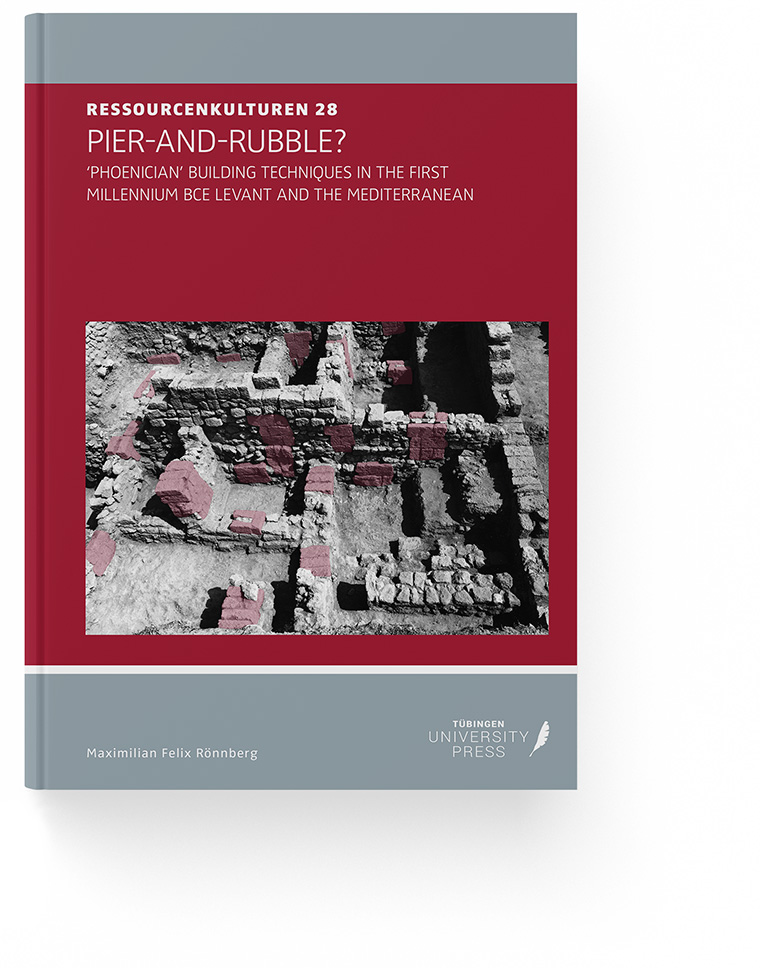
Maximilian Felix Rönnberg
Ashlars and rubble masonry were often used side by side in Levantine buildings of the Iron Age. This book distinguishes various such techniques and focuses on the popular pier-and-rubble technique. It deals with its prerequisites, its possible predecessors as well as its various structural advantages and traces its spread from its emergence at the turn of the first millennium BCE to the latest evidence, dated to its very end. An analysis of the ashlar piers’ typology and other technical characteristics indicate that its use was not spread by specialised masons but possibly by word of mouth accompanying various forms of exchange. The technique’s diffusion to the Iberian Peninsula, but not to the central Mediterranean, confirms that it should not be taken as a ‘Phoenician’ cultural or even ethnic marker. The pier-and-rubble technique is at best distantly related to the central and west Mediterranean technique called a telaio, three variants of which may be differentiated. The origin of those can only partly be traced to the ‘Punic’ area and likewise they are inadequate as cultural or ethnic markers; rather than that, the study of such building techniques highlights multi-directional links across the Mediterranean beyond the movement of mere objects and thus adds to our picture of interregional exchange. The individual occurrences of the pier-and-rubble technique are compiled in the book’s richly illustrated catalogue.
ISBN (online): 978-3-947251-96-4
ISBN (print): 978-3-947251-95-7
206 Seiten, Hardcover, ca. 210 mm x 297 mm
137,80 EUR

Federica González Luna; Razvan Adrian Sandru; Fernando Wirtz; mit einem Beitrag von Estela Fernández Nadal
Die amerikanischen Philosophien wurden historisch von der Landkarte getilgt und als »Aberglaube«, »Religion« oder »Mythos« abgestempelt. Das europäische Denken dominierte jahrhundertelang in Lateinamerika und bestimmte somit, was als Philosophie und Wissen galt.
Die politische Unabhängigkeit leitete einen kritischen Prozess der intellektuellen Autonomie ein, wodurch die frühere Unsichtbarkeit des amerikanischen Denkens sowohl prä- als auch nach-kolumbianisch allmählich auf der Landkarte zum Vorschein kam. Infolgedessen drängte sich die Frage auf: »Gibt es und gab es eine Philosophie in Lateinamerika?« Diese Frage nach der Existenz einer lateinamerikanischen Philosophie war an sich performativ. Sie selbst beweist die Existenz eines kritischen Denkens. Die Frage selbst war eine Übung, die die Konstruktion einer Philosophie implizierte. Die Philosophie in Lateinamerika ist nicht nur geschichtlich relevant. Ihre Entwicklung war ein vielschichtiger Prozess, der heute auch im Rahmen der Politik (z. B. Populismustheorien), der Theologie (Befreiungstheologie) und der Literaturwissenschaften (Post- und Dekolonialismus) von großer Bedeutung ist. Vielleicht weckt diese Einführung in den Lesern und Leserinnen den Wunsch, den Weg der lateinamerikanischen Philosophie auf eigene Faust weiterzugehen. Preguntando caminamos – Fragen stellend gehen wir
ISBN (online): 978-3-947251-98-8
ISBN (print): 978-3-947251-97-1
132 Seiten, Hardcover, ca. 170 mm x 240 mm
24,60 EUR
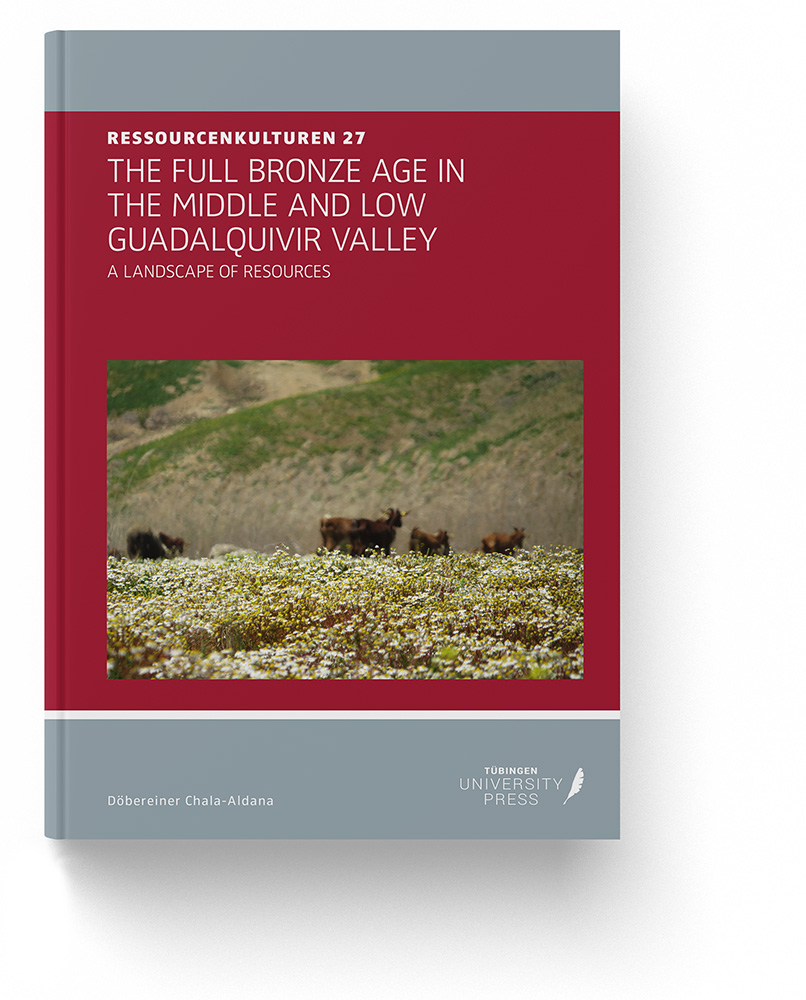
Döbereiner Chala-Aldana
Archaeology has everything to do with the past, but it also concerns the present. The way contemporary societies perceive the material world influences how archaeologists approach different phenomena identified in the material record. This influence may lead to biases and restricted scientific fields oriented towards established paradigms and discourses, rather than questioning how such discourses and modes of thought developed. This volume focuses on describing how archaeologists have perceived and presented the Bronze Age to the general public especially in the south of the Iberian Peninsula. The research makes use of the concepts of Subsistence Paradigm and Landscapes as Resources to propose alternative approaches for understanding mobility and interactions during the Bronze Age in the Middle and Low Guadalquivir Valley (Spain). The goal is to move beyond traditional models that reproduce power relationships, predatory use of materials and violence, not only in the field of Archaeology but in society as a whole.
ISBN (online): 978-3-947251-94-0
ISBN (print): 978-3-947251-93-3
328 Seiten, Hardcover, ca. 210 mm x 297 mm
137,00 EUR
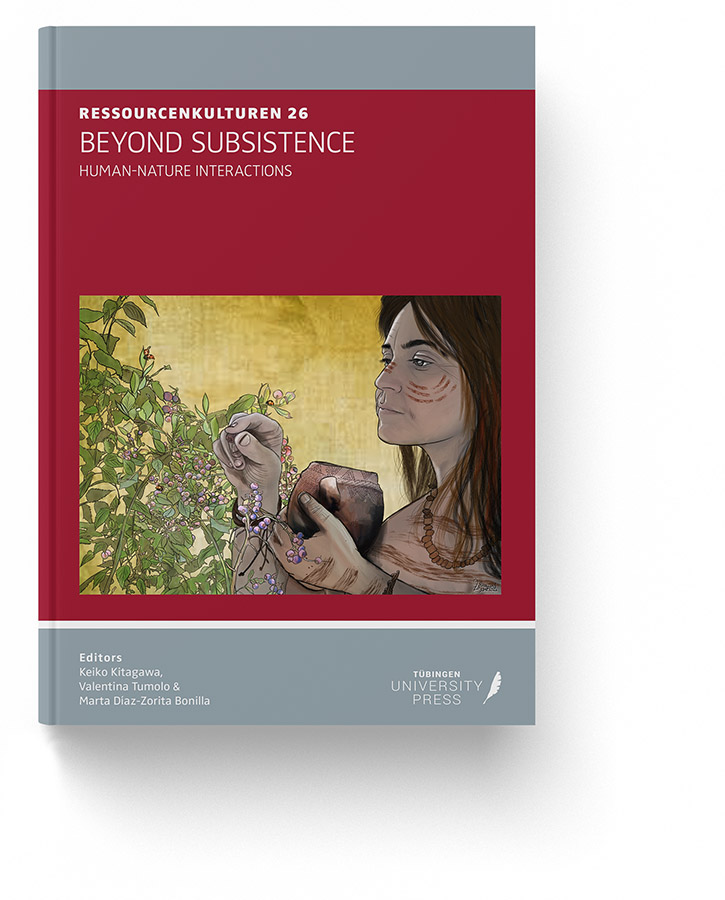
Keiko Kitagawa, Valentina Tumolo, Marta Díaz-Zorita Bonilla
Different perspectives aiming to understand the complex relationship of humans and resources were the main focus of the international workshop ‘Beyond Subsistence: Human-Nature Interactions’, which took place within the initiatives of the Collaborative Research Centre SFB 1070 ResourceCultures at the University of Tübingen. Cultural anthropologists and archaeologists came together to reflect on the meanings and values of different socio-cultural practices surrounding the interactions between humans and nature, which go beyond the pure subsistence needs. From the exploration of modern rice cultivation in India to the personal ornaments of Ice Age Germany, the case studies examined here provide insights on multiple aspects of the existence of humans, animals, plants and substances. By reflecting on behaviours and practices from modern and archaeological contexts, this edited volume offers a detailed report of the interdisciplinary discussions that occurred during the workshop and ultimately allow us to reflect on how we understand the multi-layered interactions among all types of social actors.
ISBN (online): 978-3-947251-92-6
ISBN (print): 978-3-947251-91-9
174 Seiten, Hardcover, ca. 210 mm x 297 mm, 768 g
121,00 EUR
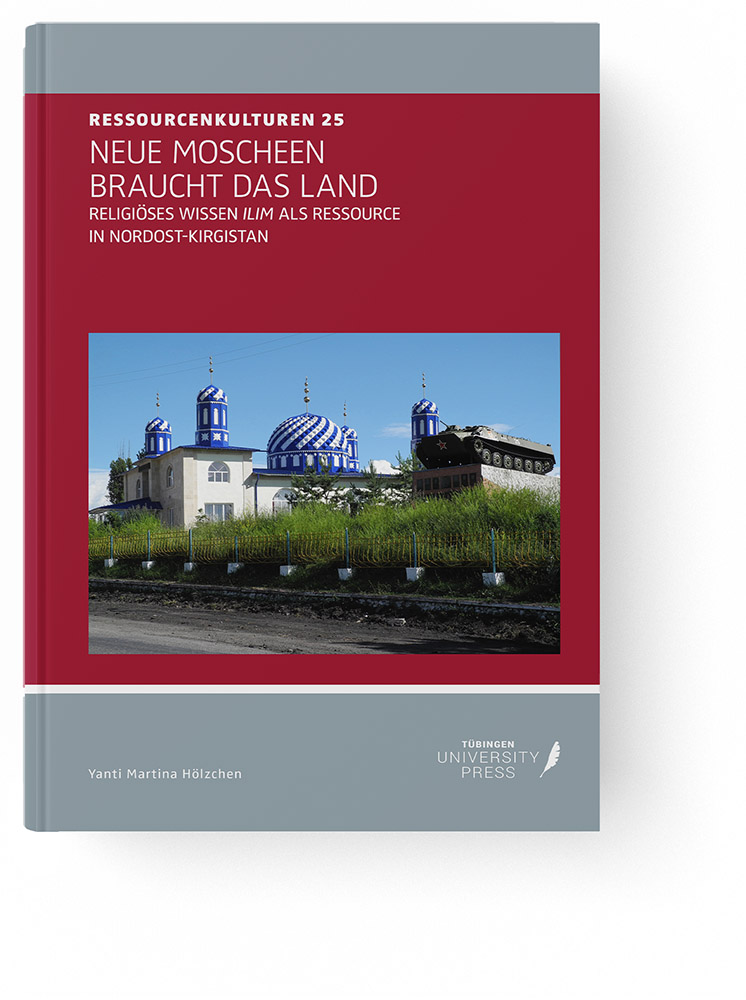
Yanti Martina Hölzchen
Die post-sowjetische Republik Kirgistan ist im Wandel: Im ganzen Land entstehen neue Moscheen, Menschen nehmen an den rituellen islamischen Gebeten teil, bislang praktizierte Traditionen verändern sich. Dieses Buch liefert eine in ihrer Breite einzigartige Ethnografie, die diese und weitere Veränderungen als Teil einer wachsenden religiösen Infrastruktur erklärt. Dabei dreht sich alles um eine Ressource: religiöses Wissen ilim. Es werden die Institutionen und Akteure in den Blick genommen, die seit Kirgistans Unabhängigkeit maßgeblich an der Verbreitung von religiösem Wissen beteiligt sind: Moscheen, Medressen, religiöse Stiftungen, Imame und die transnationale Bewegung Tablighi Jamaat. Die Autorin beleuchtet diese in ihren institutionellen und sozialen Verflechtungen, und wie sie in den Alltag der Menschen in Nordost-Kirgistan hineinwirken, diesen gestalten und verändern. Im Spannungsfeld zwischen normativ-theologischer Auslegung und Alltagspraxis zeigt sich, wie ilim für bestimmte Menschen in Nordost-Kirgistan zu einer moralischen Ressource wird, was wiederum soziokulturellen Wandel bedingt.
ISBN (online): 978-3-947251-87-2
ISBN (print): 978-3-947251-86-5
306 Seiten, Hardcover, DIN A4
129,00 EUR
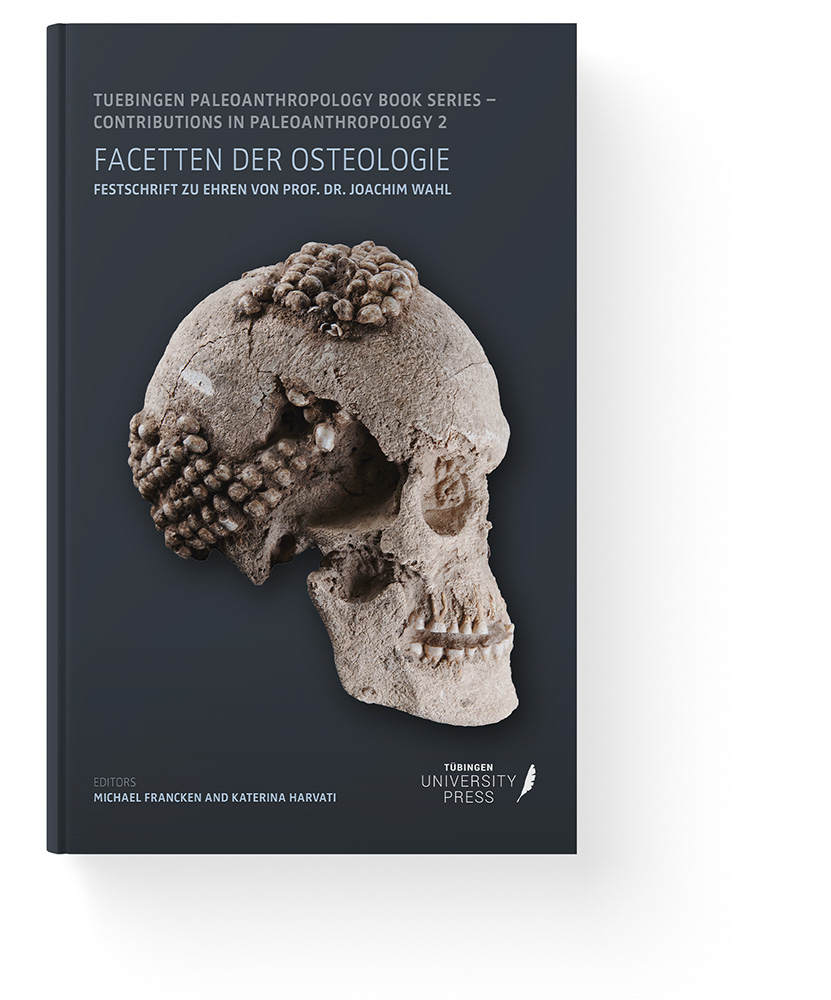
Festschrift zu Ehren von Prof. Dr. Joachim Wahl
Michael Francken, Katerina Harvati (Hrsg.)
ISBN (online): 978-3-947251-51-3
ISBN (print): 978-3-947251-50-6
246 Seiten, Hardcover, DIN A4
137,00 EUR
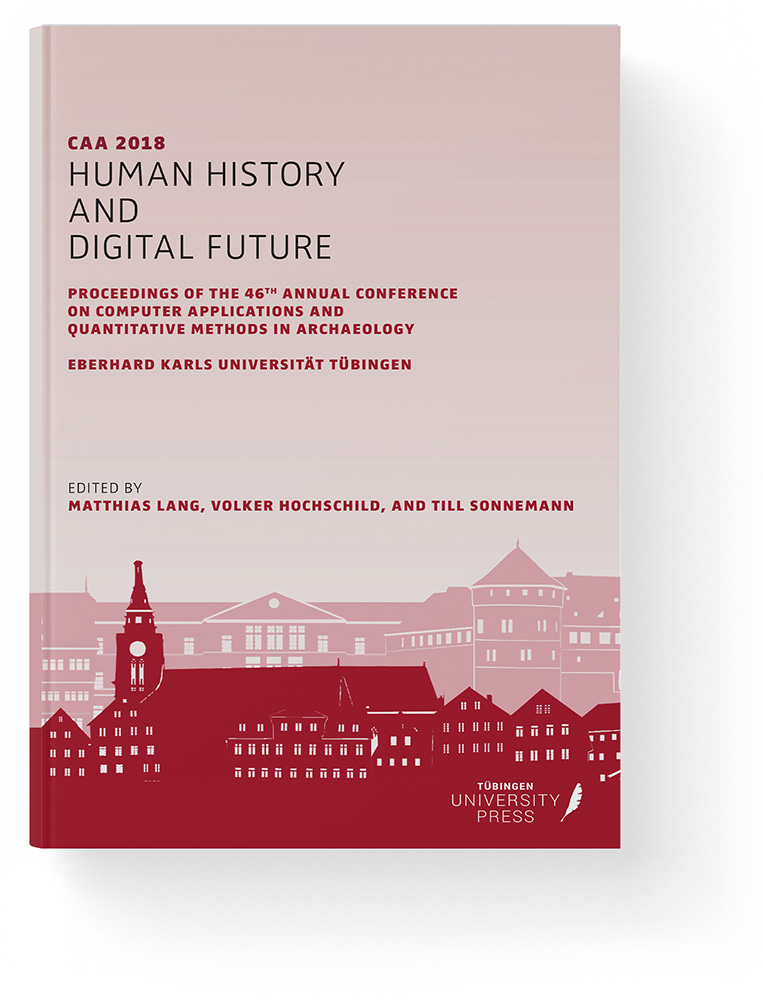
Matthias Lang, Volker Hochschild, Till Sonnemann
The Proceedings of the 46th Annual Conference on Computer Applications and Quantitative Methods in Archaeology, held between March 19th and 23th, 2018 at the University of Tübingen, Germany, discuss the current questions concerning digital recording, computer analysis, graphic and 3D visualization, data management and communication in the field of archaeology. Through a selection of diverse case studies from all over the world, the proceedings give an overview on new technical approaches and best practice from various archaeological and computer-science disciplines.
ISBN (online): 978-3-947251-90-2
ISBN (print): erschein nur online
282 Seiten
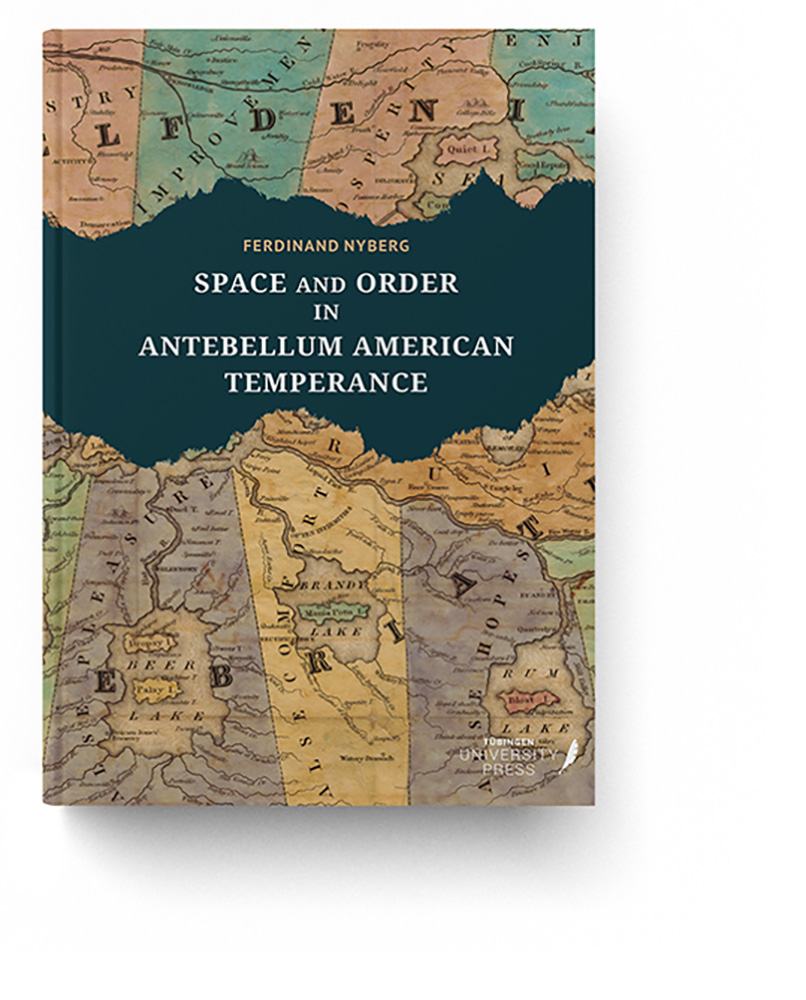
Ferdinand Nyberg
ISBN (online): 978-3-947251-83-4
ISBN (print): 978-3-947251-82-7
256 Seiten, Hardcover, 170 x 240 mm
106,18 EUR
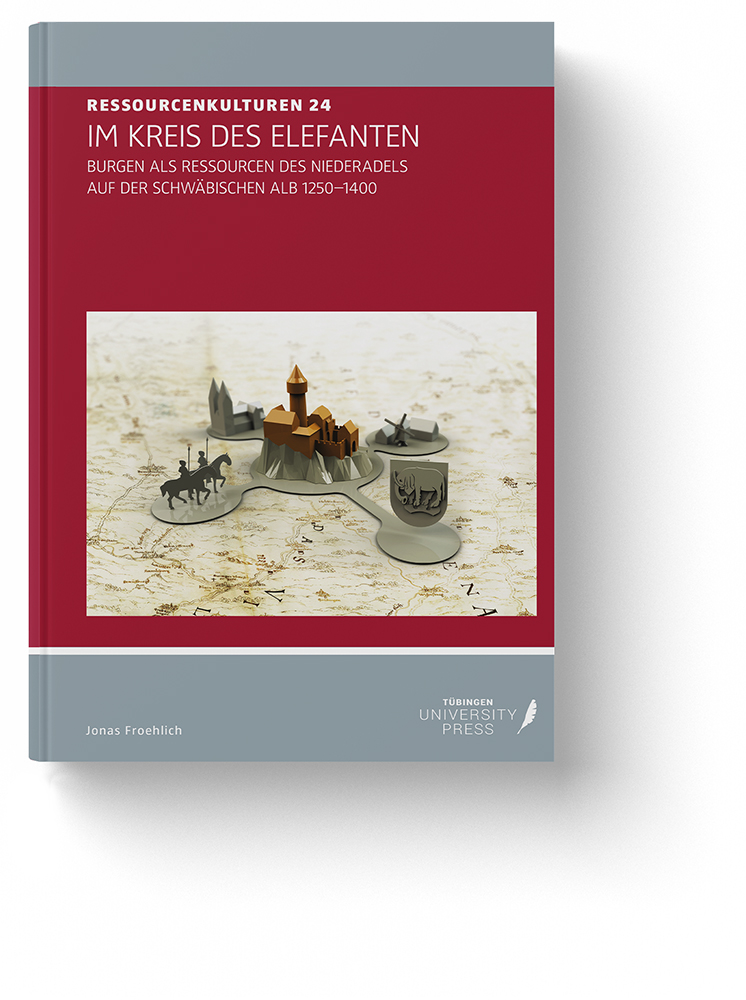
Jonas Froehlich
Burg und Adel des Mittelalters werden nicht nur in den historischen Forschungen zusammengedacht. Besonders für den Niederadel war die Verfügung über Burgen entscheidend für die soziale Positionierung des jeweiligen Adelsgeschlechts. Zur Schärfung dieser Verbindung nimmt die Dissertation beides gemeinsam in den Blick und fragt nach der konkreten Bedeutung von Burgen in der Formierungsphase des niederen Adels zwischen 1250 und 1400. Im Fokus der landeskundlichen und interdisziplinären Studie stehen Adelsgeschlechter und ihre Burgen aus dem Umkreis der Grafen von Helfenstein in der Region zwischen Geislingen an der Steige und Blaubeuren auf der Schwäbischen Alb. Untersucht werden adlige Strategien des Homemakings, der Positionierung in der Welt. Mittelpunkt dieser Positionierung war die Burg. Sie erscheint als räumlicher wie sozialer Bezugspunkt, welcher in beinahe jedem Bereich adliger Lebenswelten Bedeutung besaß: Sie war Knotenpunkt und Nukleus der Herrschaft(sausübung), Zentrum sozialer Gruppenzugehörigkeiten sowie Bühne und Medium der kulturellen Teilhabe. Burg meint damit weit mehr als nur den möglicherweise bis heute erhaltenen Baubestand, sondern das soziale und räumliche Gesamtphänomen eines Zentrums mit vielen Funktionen. Ein Zugriff auf dieses multifunktionale Phänomen ‚Burg‘ eröffnete dem niederen Adel vielfältige Handlungsmöglichkeiten und damit Chancen der Positionierung in allen Bereichen adliger Zugehörigkeit. Auf diese Weise können Burgen im Sinne des Konzepts des Sonderforschungsbereiches 1070 RESSOURCENKULTUREN als soziokulturelle Ressource beschrieben werden.
ISBN (online): 978-3-947251-85-8
ISBN (print): 978-3-947251-84-1
258 Seiten, Hardcover, ca. 210 mm x 297 mm, 1020 g
154,32 EUR
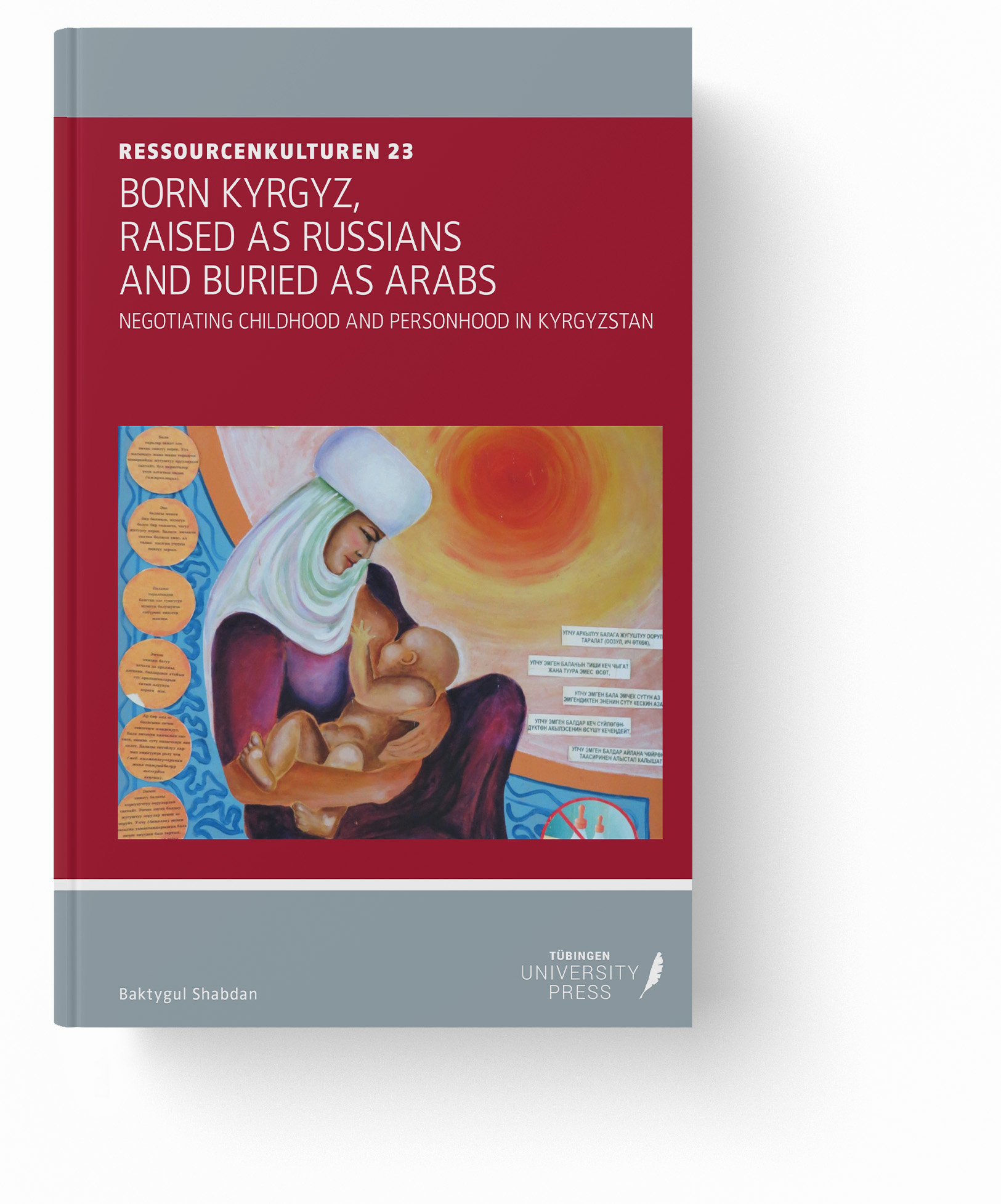
Baktygul Shabdan
This book introduces readers to an ethnography about children in post-Soviet Kyrgyzstan and the values associated with their upbringing from local people’s own point of views. The author, who conducted her research in Kochkor, a village in northern Kyrgyzstan, approaches the topic of children and their childhood through the prism of ‘healthy growth’. In the local context, ideas about healthy growth of children are not limited to their physical, mental or emotional development; it also includes bringing up ‘culturally educated’ members of society with proper moral values, as well as the conduct of culturally determined health-related and life-cycle rituals. Discourses on the healthy development of children are presented through the voices of the people of Kochkor about Kyrgyz cultural practices, the increasing role of Islam, modernity and globalisation in Kyrgyzstan and how these dynamics have changed their perceptions of children and their childhoods. Therefore, this book can also be seen as an ethnographic study of the social changes in post-Soviet Kyrgyzstan that are shaping and re-shaping the values, worldviews and daily practices of local people.
ISBN (online): 978-3-947251-79-7
ISBN (print): 978-3-947251-78-0
194 Seiten, Hardcover, ca. 210 mm x 297 mm, 844 g
109,27 EUR
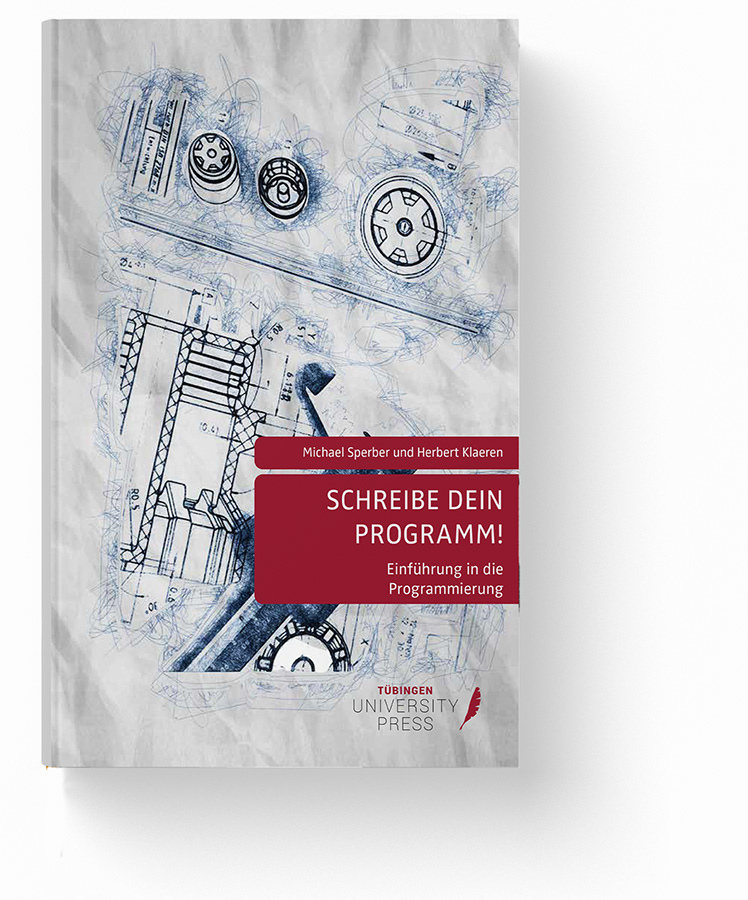
Einführung in die Programmierung
Michael Sperber, Herbert Klaeren
ISBN (online): 978-3-947251-89-6
ISBN (print): Erscheint vorläufig nur online.
516 Seiten, Hardcover, 170 x 240 mm
EUR
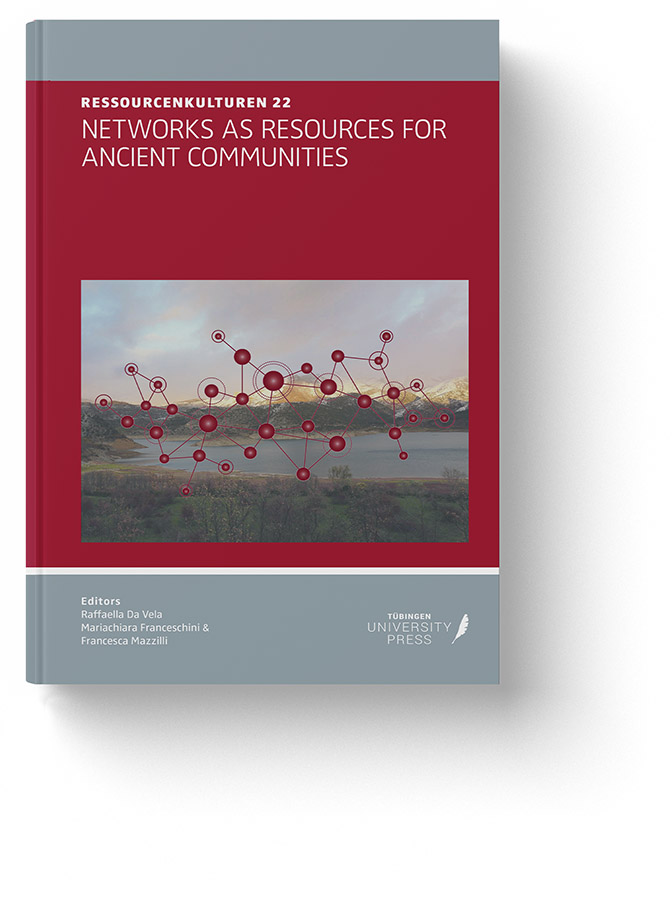
Raffaella Da Vela; Mariachiara Franceschini; Francesca Mazzilli
Covering various periods and geo-cultural areas from Iran to the western Mediterranean, with a strong focus on classical antiquity, the papers collected here approach the topic of network as resources in three different but interrelated thematic domains: the interaction between societies and the natural environment (socio-natural networks), the transmission of knowledge and habitus (networks of knowledge and power) and religious interactions (sacred landscape). The social values that communities attribute to the networks they are embedded in are opened up to new interpretative layers, dynamics and scales. Looking at networks as resources changes our perspective on both terms of the equation. On the one hand, ancient networks are reframed in their relational and social contexts and linked to their actors’ intentions and perceptions. On the other hand, the properties of specific networks, such as fluidity, redundancy and the strength and fragility of relationships, shed new light on resources and resource-related socio-cultural dynamics.
ISBN (online): 978-3-947251-75-9
ISBN (print): 978-3-947251-74-2
230 Seiten, Hardcover, ca. 210 mm x 297 mm, 956 g
100,80 EUR
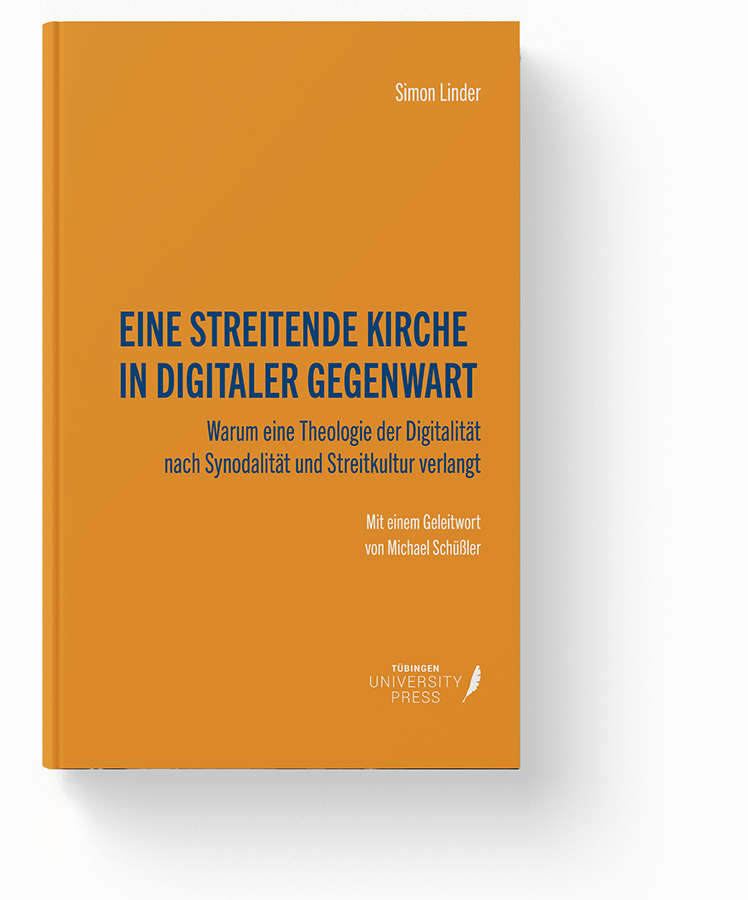
Warum eine Theologie der Digitalität nach Synodalität und Streitkultur verlangt
Simon Linder
ISBN (online): 978-3-947251-80-3
ISBN (print): 978-3-947251-81-0
576 Seiten, Hardcover, 170 x 240 mm
151,95 EUR
Tübingen University Press ist der Eigenverlag der Universität Tübingen und ein Dienstleistungsangebot der Universitätsbibliothek. Wir bieten Tübinger Spitzenforschung aller Fakultäten ein Publikationsforum für Monographien, Sammelbände und Lehrbücher.
Unsere Leitlinien: